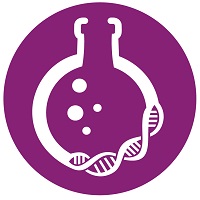Bioanalytics
Rapid Fires: Novel Instrumentations in Bioanalysis/Oligo Bioanalysis, Platforms and Methods
The Tale of Two Methods: Charge Heterogeneity of Stressed Biotherapeutics
Wednesday, November 12, 2025
3:30 PM - 3:45 PM CT
Location: 221 AB

Michael J. Grasso, PhD (he/him/his)
Senior Scientist
Merck
Rahway, New Jersey
Rapid Fire Speaker(s)
Forced degradation of biologics is the intentional degradation of a therapeutic molecule to various stress conditions to estimate possible degradation that may occur through manufacturing, storage, shelf life, and distribution. Samples subjected to various stress conditions are then analyzed using a variety of techniques to assess what liabilities may be present to help inform the analytical control strategy. Charge variant assays in particular highlight the charge heterogeneity in the sample due to post translational modifications on the protein and play an important aspect to the analytical control strategy. The purpose of this study is to highlight the differences between two different methods for analyzing charge variants in biotherapeutic molecules: Ion-Exchange Chromatography (IEX) and imaged capillary isoelectric focusing (icIEF). The comparison of these two methods help inform on the differences that can lead to an offset in some forced degradation conditions and can establish a plan of analysis for future studies.
Learning Objectives:
- Upon completion, participants will be able to understand the pros and cons of using ion exchange chromatography and capillary isoelectric focusing on stress molecules for charge variant analysis.
- Upon completion, participant will be able to more fully understand forced degradation impacts on biologic therapeutics within the development space
- Upon completion, participant will further understand charge variant impacts.


